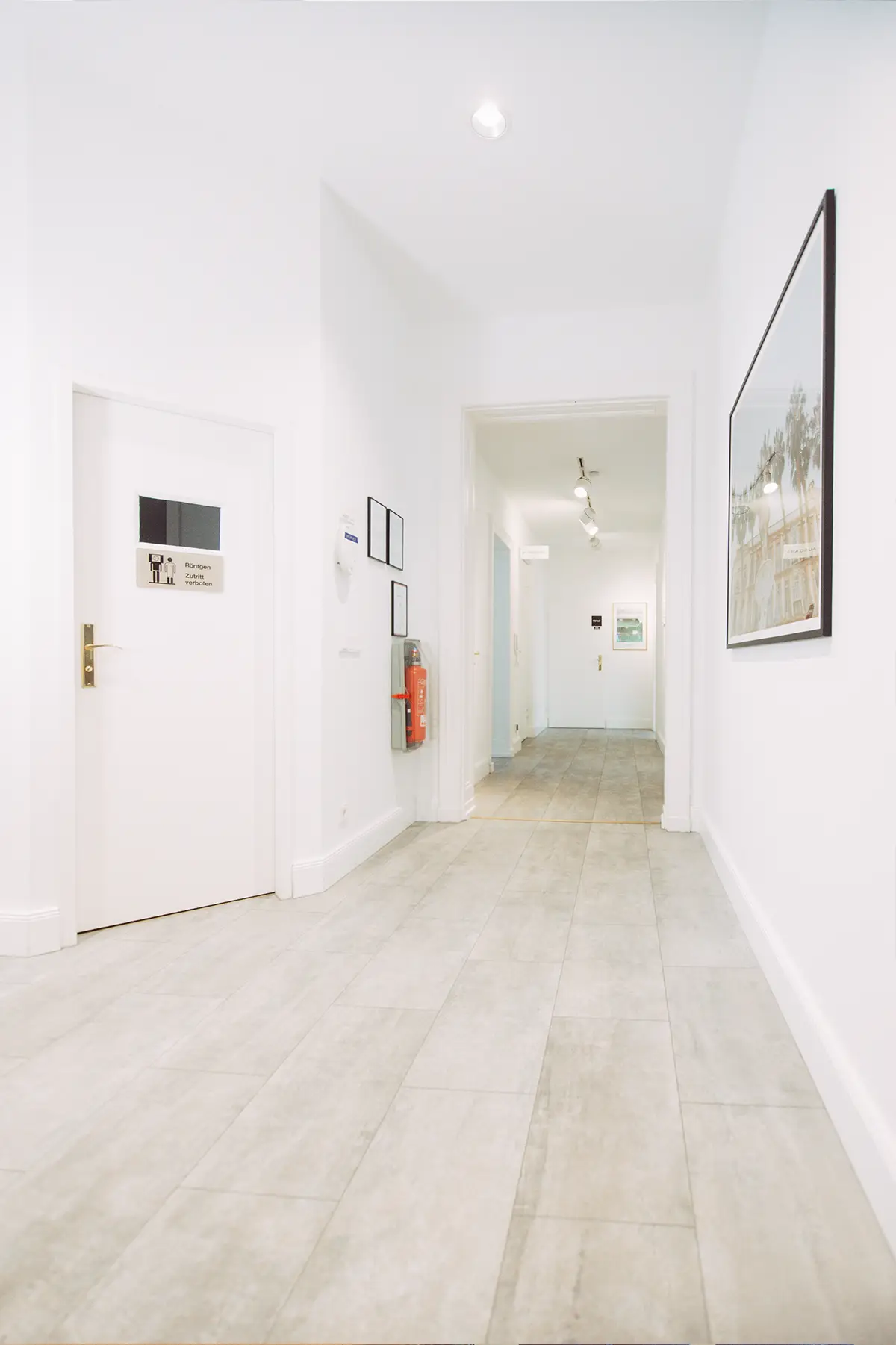Mandibular protrusion splint
A mandibular advancement splint, also known as a snoring splint or anti-snoring splint, is a dental aid that is used specifically to treat snoring and mild to moderate sleep apnoea. The customised splint ensures a more peaceful sleep and improves the quality of life of those affected and their partners.
Functionality
The splint is worn during sleep and consists of two parts for the upper and lower jaw that are precisely customised to your dental situation. It moves the lower jaw slightly forwards (protrusion), which widens the airways. At the same time, the tongue is prevented from falling back into the throat. This mechanism improves breathing and reduces both snoring noises and breathing interruptions in cases of mild to moderate sleep apnoea.
Benefits
- Non-invasive: No surgical interventions necessary.
- Cost-friendly: Less expensive than many alternative therapies.
- Easy to use: No complex set-up or technical complexity.
- High acceptance: Many patients prefer this splint to other solutions such as CPAP devices.
Possible side effects
Slight discomfort may occur at the beginning of use, which is usually temporary:
- Jaw joint pain
- Increased salivation
- Slight tooth movement
- Pressure points on teeth or gums
To minimise these side effects, a professional fitting by a dentist or orthodontist is essential.
Experience and prospects of success
Experience to date with mandibular advancement splints has been predominantly positive. Snorers and patients with mild to moderate sleep apnoea in particular benefit from this form of therapy:
- Significant improvement: around 80% of snorers report noticeable relief.
- Study results: Reduction of the apnoea-hypopnoea index (AHI) by 50-80%.
- Satisfaction: Higher acceptance and better compliance than with CPAP devices (70% vs. 50%).
- Positive feedback: Partners also appreciate the quieter nights.
Challenges
Despite high success rates, there are also limitations, particularly in cases of severe sleep apnoea, where the splint is often not sufficient. The following aspects can also occur:
- Familiarisation phase with slight discomfort
- Material fatigue after 2-3 years
- Minor changes in tooth position with long-term use
Regular dental check-ups and good oral hygiene are crucial to ensure long-term effectiveness and tolerability.
Suitable for whom
The splint is particularly suitable for
- Patients with mild to moderate sleep apnoea
- People who cannot tolerate CPAP devices
- A practical travel alternative to CPAP devices
CPAP vs. mandibular advancement splint
While CPAP devices are the standard therapy for moderate to severe sleep apnoea, the mandibular advancement splint offers an effective and patient-friendly alternative for less severe forms of the condition. The choice of therapy depends on individual needs, the severity of sleep apnoea and personal preferences.

How does a mandibular advancement splint work?
A mandibular advancement splint, also known as a mandibular advancement splint or snoring splint, is a proven dental aid for the treatment of snoring and mild to moderate sleep apnoea. The splint consists of two customised parts for the upper and lower jaw, which are usually made of plastic. Connecting elements between the two parts enable precise adjustment of the advancement movement.
Wearing the splint gently pushes the lower jaw forwards. This slight forward movement also shifts the tongue forwards, which widens the throat. The free airway prevents the tongue from falling back and reduces both breathing pauses and snoring noises.
It is easy to use: the splint is only worn at night and the degree of advancement (protrusion) can be individually adjusted. A familiarisation phase is often necessary to get used to the wearing comfort. Regular check-ups at the dentist ensure that the splint is working optimally and possible side effects are minimised.
The advantages of the UKPS are manifold. It is a non-invasive and reversible treatment method that does not require any surgical intervention. With a high success rate for snoring and mild to moderate sleep apnoea, as well as being relatively comfortable to wear, it is an attractive alternative to other therapies.
As with any treatment, side effects can occur, but these are usually only temporary. These include initial jaw joint discomfort, increased salivation, slight tooth movement or a temporarily altered bite in the morning. These complaints can be minimised with professional fitting and regular follow-up checks.
A mandibular advancement splint offers an effective and gentle solution to reduce snoring and improve breathing during sleep. Let us advise you on whether this form of therapy is suitable for you!
